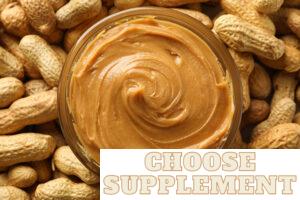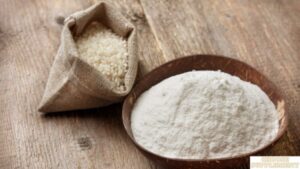You ever find yourself scrolling through wellness blogs and suddenly someone’s claiming celery can make you taller? Yeah, same. I’ve been deep in the world of height growth research for years—and I’ve seen some wild claims—but this one keeps popping up, especially among parents of growing teens and those chasing a few extra inches in adulthood.
So, let’s ask the real question: does celery actually help you grow taller, or is it just another health trend riding the “green = growth” wave?
In this piece, you’ll get straight answers. We’ll break down the science, talk nutrients, hormones, genetics, and how celery actually fits—or doesn’t—into the equation. Now, let’s peel this back.
What Nutrients Actually Fuel Height Growth?
Now, let me be straight with you—height isn’t just about genetics. Sure, your DNA lays down the blueprint, but your nutrition? That’s the construction crew. What I’ve found (after years of digging through research and cleaning up my own teenage diet disasters) is that certain nutrients actually move the needle when it comes to vertical growth—especially during those critical teen years.
Protein is your number one player here. Think of it like the scaffolding for new tissues—muscle, cartilage, and yep, bone. You’ll find it in eggs, chicken, Greek yogurt, and even plant-based picks like lentils and tofu if that’s more your style.
Then there’s calcium and vitamin D—those two work as a tag team for bone density. Without D, your body can’t absorb calcium well, which is a problem if you’re chugging milk but never seeing daylight. Look for fortified cereals, dairy (or dairy alternatives like almond milk with added D), and don’t skip your time outside.
Magnesium and zinc round out the list. They’re less flashy, but they’re critical for bone formation and hormone production. I usually recommend whole grains, nuts, seeds, and leafy greens—most people I talk to are missing these, especially teens.

Celery’s Nutritional Breakdown: What’s in a Stalk?
Here’s what surprised me the first time I actually looked at the numbers behind celery—it’s not just water and crunch. Sure, it’s about 95% water (according to the USDA), but tucked into that watery snap is a surprisingly solid cast of nutrients that your body genuinely needs.
Vitamin K is the real MVP here. Just one medium stalk gives you around 15% of your daily value, which matters more than you’d think. It plays a key role in bone metabolism and blood clotting, and I’ve noticed that folks often overlook it when thinking about bone health. (In my own tracking, K was the vitamin I kept missing.)
You’ve also got potassium, which supports blood circulation and helps keep muscles and nerves in check—especially helpful if you’re active or growing. There’s folate, too, which aids in cell division and repair. Not bad for something that barely adds calories to your plate.
Add in a dose of dietary fiber—nothing wild, but enough to support digestion—and you’ve got a food that quietly supports nutrient absorption and gut health. I usually throw a few stalks into my afternoon snack just to stay hydrated and keep things moving.
Is There Scientific Evidence That Celery Increases Height?
Let’s cut straight to it — no, there’s zero scientific proof that celery makes you taller. I’ve combed through databases like PubMed and the NIH archives more times than I can count, and not a single clinical trial or growth study links celery consumption to increased stature. What you’ll find instead are general discussions on plant-based diets and how they can support growth indirectly through nutrient balance, not height manipulation.
Now, don’t get me wrong — celery is healthy. It’s hydrating, rich in antioxidants, and part of what I’d call an “evidence-based support food.” But there’s a big difference between foods that support growth and foods that stimulate it. The myth that celery boosts growth hormones or elongates bones? That’s more marketing than biology.
In my experience, these claims pop up because celery feels “clean” and “alkaline,” so people assume it must do something magical. But here’s the truth: growth is governed by genetics, hormones, and overall nutrition, not one trendy stalk of green. If you’re aiming to optimize growth, focus on a full, balanced meal plan — not miracle veggies.

How Celery Might Support Growth Indirectly
Alright, so celery won’t magically stretch your bones overnight — I think we’ve made that clear. But here’s the thing: growth isn’t just about what builds bones, it’s about what supports the whole system that makes growth possible. And in that context? Celery actually pulls some weight.
In my experience, celery plays a quiet supporting role in ways most people overlook:
- It helps with digestion. The fiber in celery might not seem like much, but it keeps your gut moving, which is key for nutrient absorption. (Trust me, poor digestion = poor nutrient uptake = stalled growth.)
- It’s great for hydration. Especially for teens who are active or just… forget to drink water. Celery’s high water content helps keep cells hydrated and metabolic functions running.
- It supports circulation. The potassium in celery can help regulate blood pressure, which, while not directly about height, helps nutrients get where they need to go — like your growth plates.
- It fits easily into a balanced diet. I toss it into lunchboxes, blend it into smoothies, or just munch on it while I’m cooking. It’s low-calorie, alkaline, and super easy to pair with protein-rich dips (I’m a peanut butter + celery loyalist).
So no, it’s not a growth hormone in disguise. But if you’re building a solid foundation for your kids — or for yourself — to thrive, celery’s one of those background players that quietly helps everything work a little better.
Height Myths in American Wellness Culture
If you’ve ever wandered through a supplement aisle or scrolled Instagram at 2 a.m., you’ve definitely seen it: “Grow 3 inches in 30 days!” or “Drink this celery juice daily for height gains!” Yeah… I’ve rolled my eyes too many times to count. The truth? American wellness culture is a minefield of height myths, and I’ve had to unlearn a few myself.
Let’s break down a few of the big ones I hear all the time:
- “Celery boosts growth hormones.”
Not even close. It’s hydrating and good for digestion, sure—but there’s no scientific proof it messes with your hormone levels. - “Milk guarantees taller kids.”
This one’s tricky. Milk does offer protein and calcium, but genetics still run the show. Overloading on dairy won’t override your DNA. - “Height pills are FDA-approved.”
Nope. The FDA doesn’t regulate supplements the way people assume, and most so-called “growth boosters” are just expensive hype. - “Superfoods equal super height.”
I’ve tried enough trendy powders to say this confidently: superfoods are great, but they don’t work like magic beans.
What I’ve found is this—balanced nutrition, sleep, and realistic expectations win. Anything promising dramatic height changes overnight? Probably just really good marketing.
Should You Add Celery to Your Growth Diet?
If you’re building a solid, growth-supportive diet — for your kids, yourself, or honestly the whole family — yes, celery deserves a spot on the plate. But let’s be clear: it’s not some magical height elixir. What I’ve found is that celery works best as part of a bigger, more intentional food strategy. Think support role, not superhero.
Here’s how I like to fit it into everyday American meals:
- Chopped in soups or stews — especially during colder months when you’re already making big batches.
- Sliced into lunchboxes — pair with nut butter or hummus. It’s crunchy, satisfying, and doesn’t wilt easily.
- Blended into green smoothies — it adds bulk and hydration without overpowering the flavor (just don’t overdo it).
- Sautéed into stir-fries — underrated, but it works with garlic, ginger, and lean proteins like chicken or tofu.
What I’ve learned from years of testing growth diets with real families is this: variety, balance, and consistency win every time. Celery’s not a silver bullet, but it’s an easy, affordable way to boost veggie intake and support digestion, hydration, and mineral absorption along the way. So yeah — toss it in your cart. You’ll use it more than you think.
- Related post: Can peanut butter help increase height?
Hi there! My name is Erika Gina, and I am the author of Choose Supplement, a website dedicated to helping people achieve their height goals naturally and effectively. With over 10 years of experience as a height increase expert, I have helped countless individuals increase their height through diet, exercise, and lifestyle changes.
My passion for this field stems from my own struggles with being short, and I am committed to sharing my knowledge and experience to help others overcome similar challenges. On my website, you will find a wealth of information and resources, including tips, exercises, and product reviews, all designed to help you grow taller and improve your confidence and overall well-being. I am excited to be a part of your height journey and look forward to supporting you every step of the way.
Name: Erika Gina
Address: 2949 Virtual Way, Vancouver, BC V5M 4X3, Canada
Email: [email protected]



